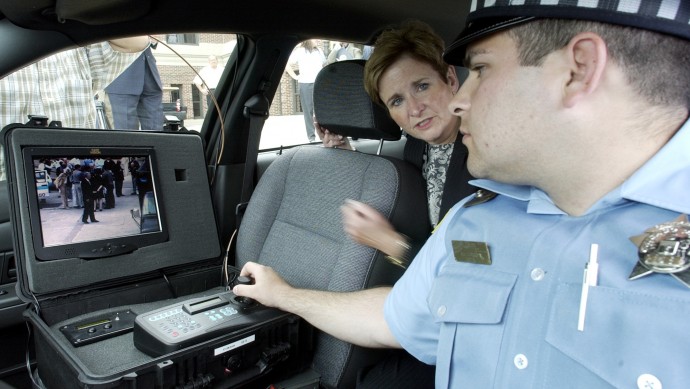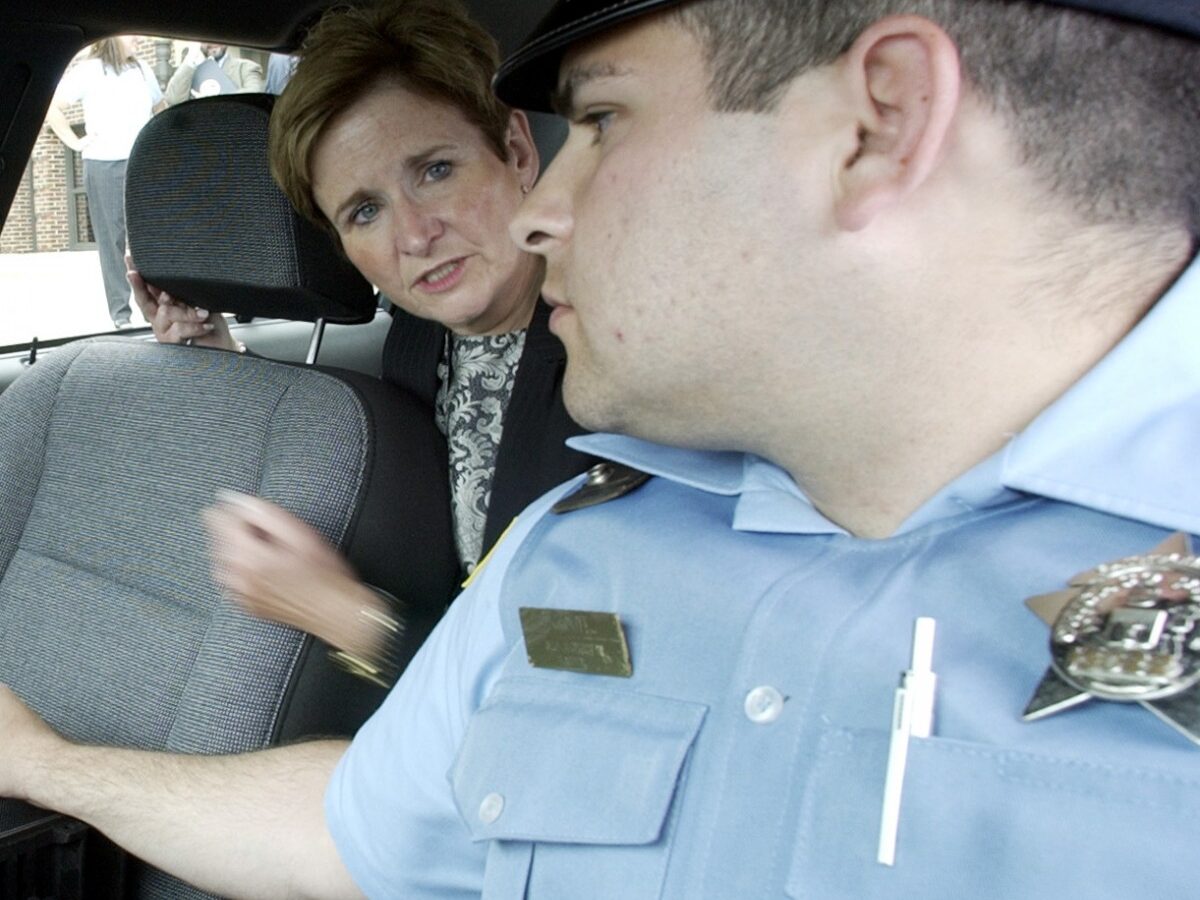
(MintPress) – The same Chicago police department responsible for the arrests of civilians recording officers on the job is now in hot water over wiretapping conversations with reporters, highlighting an inconsistency within the department when it comes to cases of privacy.
Recording law enforcement officials without their knowledge or consent is illegal in two states, including Illinois — and the law goes both ways. Law enforcement officials do not have authority under the law to take part in the practice either. Everyone plays on the same field, which means in order to record a conversation, consent must be given prior to the action.
Roderick Drew, a spokesperson for the Chicago City Law Department, said in an interview with MintPress that officials with the city mistakenly recorded conversations with Chicago Tribune employees.
“Once it was brought to our attention, steps were taken to ensure it would not happen again,” Drew said.
According to the state law, the police department is held to the same standards regarding eavesdropping cases. Yet the state’s attorney has yet to publicly press charges or launch an investigation into the incident.
Andy Conklin, a spokesperson for the State Attorney’s Office told MintPress the office had no comment on the matter.
The recording practices used against reporters is being brushed off as a trivial incident, not only by those within the department, but by major political figures in the city. Mayor Rahm Emanuel addressed the issue during an unrelated press conference, saying that it was “much ado about nothing.”
The ACLU of Illinois is one organization calling on the attorney’s office to launch such an investigation, claiming that standards regarding the eavesdropping law should be applied to everyone equally, according to the law.
“We think the state’s attorney ought to investigate this,” ACLU Director of Communications and Public Policy Ed Yohnka said in an interview with MintPress. “The same standard should be applied.”
In the meantime, Chicago police are facing record crime rates in the city, causing alarm and stretching resources thin.
A double standard?
Those who recorded law enforcement officials were not treated as if their cases were “much ado about nothing.”
When asked if a double standard was being set, Drew told MintPress that wasn’t the case, highlighting a case in which a Chicago Tribune employee was suspected of recording a conversation with a city official. In that case, Drew said, no charges were pressed, as it was understood that people make mistakes.
But that certainly isn’t the only case of eavesdropping the Chicago Police Department has dealt with.
A woman reporting a case of sexual assault, allegedly committed by an officer, was arrested and charged with a felony for taping a conversation with an internal affairs investigator. Tiawanda Moore was allegedly groped by an officer when she was being questioned regarding a domestic disturbance call. When she attempted to report this to the international affairs division, she claims they encouraged her to drop the case. It was at that point she began recording the conversation on her Blackberry.
She was charged with felony eavesdropping, which carries a maximum of 15 years in prison. But Moore isn’t in prison. She sued the city — and won.
Writer Radley Balko highlighted the case of filmmaker Patrick Moore, who was arrested in 2004 for charges of eavesdropping after attempting to film police for a piece on the relationship between the African-American community and the police department. Johnson received help from the ACLU in his battle, and won. Yet he was still bogged down with the process of fighting the charges.
It’s cases like this that have the ACLU concerned over a double standard and misuse of the eavesdropping law.
The ACLU has long been opposed to Illinois’ eavesdropping law, largely because it hinders the ability to monitor law enforcement officials, what they see as a violation of the First Amendment. In cases like this, they see the police department using it when it benefits them — and shutting it down when the shoe is on the other foot.
As for comments regarding “inadvertent” activity on behalf of the law enforcement division, Yohnka said that, regardless, an investigation regarding such claims should take place. But he and others aren’t hold their breath.
Instead, the ACLU is using this case to highlight the problems with the eavesdropping law and the lack of clarification in terms of its execution.
The ACLU is in the middle of a legal battle in which it’s challenging the eavesdropping law, and they’re seeing some success. In May, a federal appeals court ruled the law likely violates the First Amendment. The ACLU currently has an injunction on the eavesdropping law.
Yet in terms of the state law, it stands. The state hasn’t seen convictions under the law. Instead, they’ve seen charges issued — and charges dropped. From the standpoint of the ACLU, the eavesdropping law is being used by law enforcement to intimidate civilians, many of whom are attempting to challenge the police department.
“We’re challenging the use of the eavesdropping law to prosecute and threaten jail time for recording police officers doing public duty in a public place,” Yohnka told MintPress.
Moving on
Illinois is one of two states in the U.S. where recording an on-duty police officer is deemed illegal. And while the ACLU is paving the way toward the eradication of what it sees as an unconstitutional law, it continues to stand.
The question is, why?
Both civilians and law enforcement officials have found themselves in the hot seat. The only difference is that law enforcement has yet to be held accountable. Considering the state’s attorney’s office would not comment on the matter, there’s no proof to ensure that the investigation with Chicago Tribune employees is being investigated.
If that’s the case, it seems a double standard is being set, only adding fuel to the debate that has many questioning what the police department needs to hide.


